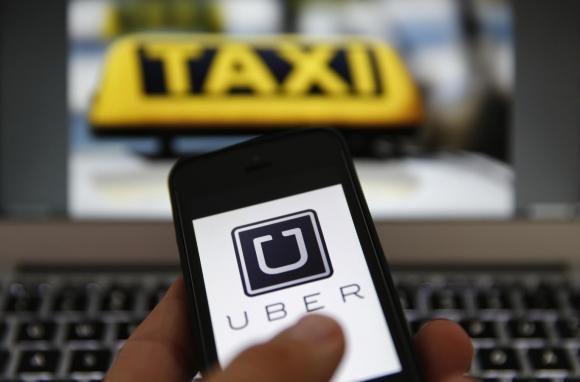Congress Rides The Uber Bandwagon: Car Service Popular With Washington Lawmakers, Study Says

For a “do-nothing” Congress, they sure do put in a lot of extra miles. Uber, the popular ride-sharing service founded in San Francisco five years ago, is now the preferred mode of transportation for members of Congress on the campaign trail, according to a new study from the research firm Hamilton Place Strategies. And its growing popularity among Washington lawmakers could have regulatory implications for areas where Uber is facing opposition from local transportation agencies.
The study, released Tuesday, found that congressional Uber rides went from practically zero in 2010 to 61 percent of total congressional car travel in the 2014 election cycle. In 2014, congressional candidates and their aides took 2,800 Uber rides, compared to 1,800 taxi rides. That’s a 25-fold increase over the previous cycle, according to Tom Kise, the study’s lead author. At the same time, Kise wrote, taxi use decreased by 33 percent.
“Uber has undoubtedly caused disruption to the status quo of ride services,” Kise wrote.
Researchers conducted the study by looking at Federal Election Committee data from the last three election cycles. Congressional committees are required to report where they raise campaign funds and how those funds are spent. In 2014, for instance, campaigns spent $112,000 on short-term rides under $100. The study does not say which politicians used Uber.
Founded in 2009, Uber has met with significant pushback from taxi unions, transportation agencies and local politicians who say the app-enabled ride-sharing service is tantamount to an illegal taxicab ring. Just last month, a district judge in Nevada temporarily blocked Uber drivers from offering rides, until its legality could be hashed out in court.
But given that so many members of Congress are now using the service, Kise speculates that Uber could soon win over a new wave of defenders -- not just on Capitol Hill but also within the municipalities where legal fights over Uber are playing out.
“As members of Congress become early adopters and consumers, they may exert an influence on their local counterparts as these regulations are debated at the local level,” Kise wrote.
Read the full study, “Congress Votes Uber,” here.
Christopher Zara is a senior reporter who covers media and culture. Got a news tip? Email me here. Follow me on Twitter @christopherzara.
© Copyright IBTimes 2024. All rights reserved.




















